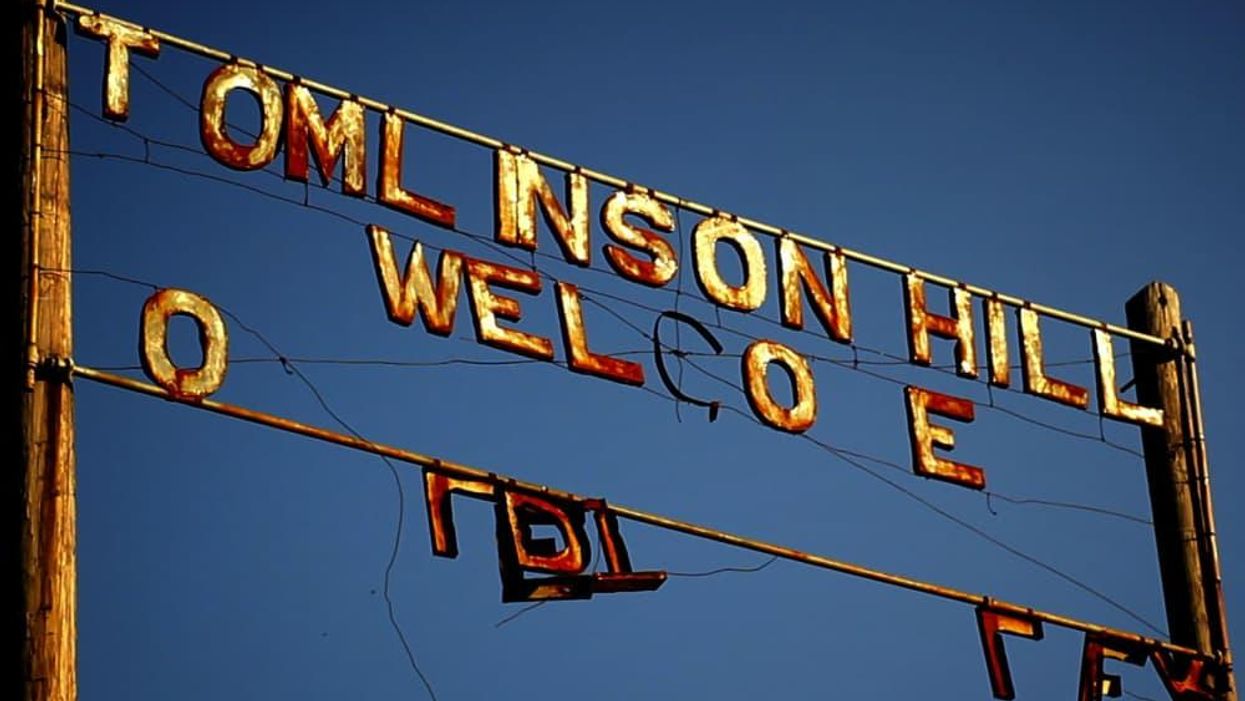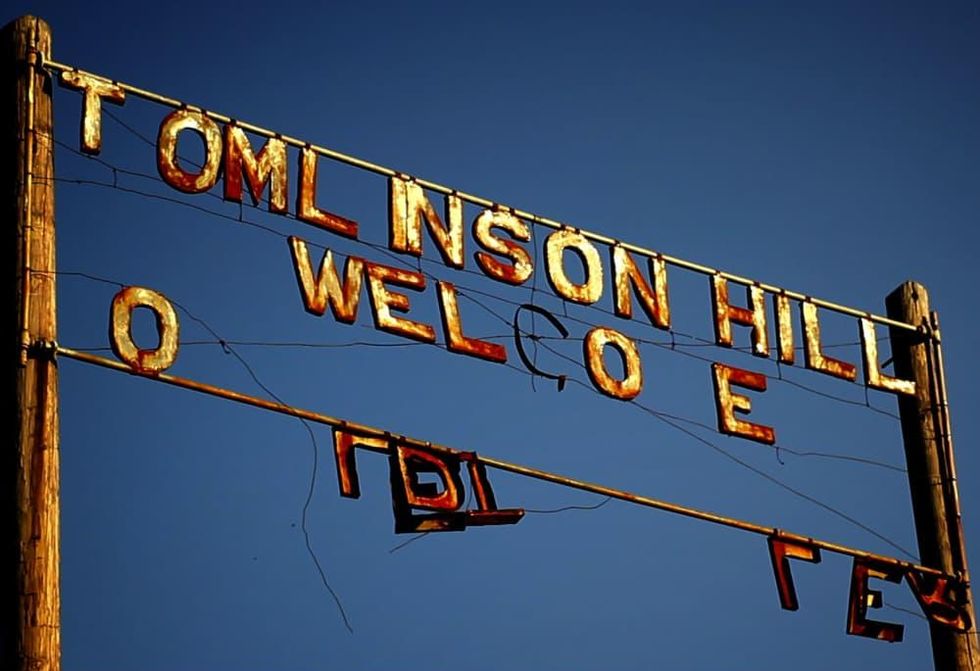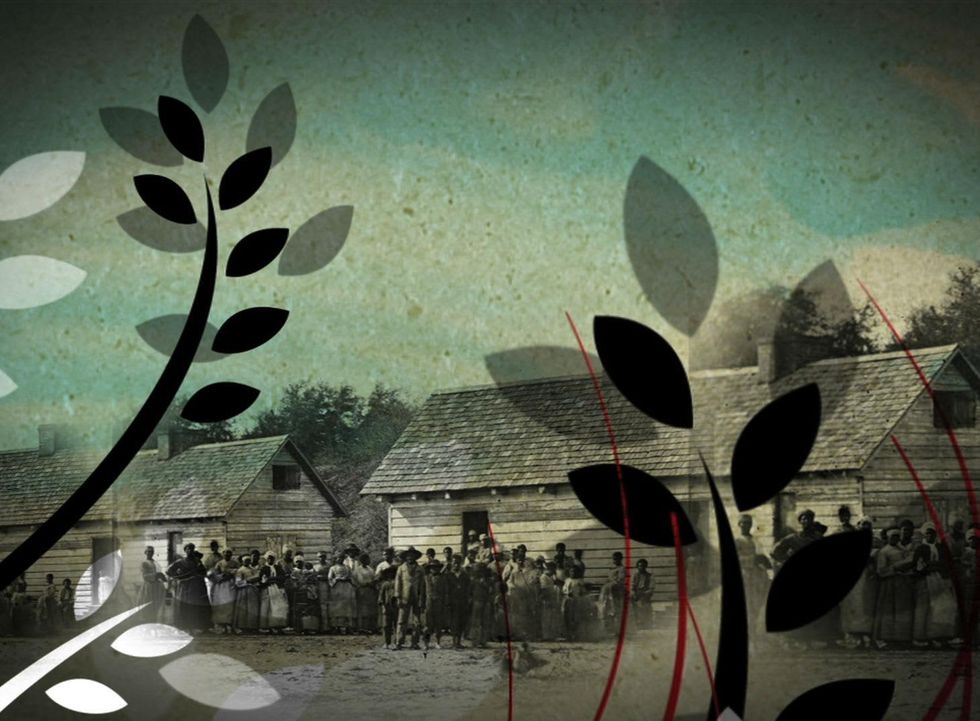DIFF Insight
Dallas filmmakers uncover the history of Texas slaves in Tomlinson Hill
Two hours outside Dallas lies Marlin, Texas, a town of 6,000 that grew out of a nearby slave plantation known as Tomlinson Hill. In the intimate documentary Tomlinson Hill directed by Dallas filmmaker Lisa Kaselak (playing at the Magnolia Theatre on April 6 and 8), journalist Chris Tomlinson confronts his own history and guilt while looking into the lingering legacy of division that continues to affect the town’s residents.
In the 1910s and 1920s, Marlin became a literal hot spot for tourists due to its natural hot springs, which were believed to cure whatever ailed you. But eventually this part of Marlin’s economy ran dry, and when the town was desegregated in 1965, lots of white residents left entirely or moved to the outskirts.
As a result of these two factors, racial division in this small town was entrenched in part by geography and a faltering economy, which today contributes to the town’s crumbling infrastructure and increasing number of abandoned storefronts.
“It’s the story of America, as far as I’m concerned,” says documentarist Chris Tomlinson.
“This is still a very rural area, where people raise cattle and ride horses every day. And they are so proud and loyal to that lifestyle,” says Tomlinson. “Meanwhile, the African-American community in Marlin is much more urban-focused. In terms of how the two spend their time and what they value, it’s a very divided place.”
Kaselak, a film and new media professor at Southern Methodist University, first met Tomlinson when they studied at the University of Texas. After 15 years working abroad as an Associated Press reporter, Tomlinson returned to Dallas, and the two reconnected with the goal of highlighting a lesser-known part of Texas history.
“There is surprisingly little documentation of Texas slavery,” Kaselak says. “So we wanted to bring this history to light.”
For his part, Tomlinson grew up hearing from his grandfather that their family’s slaves were so well treated that they took the surname Tomlinson after being freed. Although this explanation struck Tomlinson as a little too quaint, some of his ancestors’ former slaves did, in fact, take the name.
The documentary tracks his encounter with Loreane Tomlinson, a black resident of Marlin and mother of former NFL running back LaDainian Tomlinson. Loreane has committed herself to bettering Marlin and is trying to raise community-based solutions to preserve and integrate the town’s history.
“After meeting Loreane, I knew I wanted the film to tell the story of my family history as well as her family history,” Tomlinson says. “Together, it’s the story of America, as far as I’m concerned.”
Turning the camera on local residents, historians, high school students and city officials, Kaselak and Tomlinson uncover a deeply rooted feeling of separateness that they believe is more complicated than the dreaded r-word. “You wouldn’t go into this community and say, ‘this person is racist’ or ‘that person is racist.’ It’s not that simple,” says Kaselak.
“Race relations today are much more subtle than they used to be, and often there isn’t a good-guy, bad-guy dynamic. In Marlin, I feel they’re all good people struggling with 150 years of baggage that many may not realize they have,” Tomlinson adds.
As an Associated Press news correspondent in Africa for nearly 15 years, Tomlinson covered the end of apartheid in South Africa, post-genocide life in Rwanda and clan warfare in Somalia. “As a result, I came to realize bigotry often had little to do with skin pigmentation but rather bigotry can take all kinds of forms. It made me think of my family history,” he says.
As for how the film has been received in Marlin, Kaselak feels humbled by the responses she was able to capture on film. “We’re very proud of the people of Marlin, because this is a monumentally uncomfortable topic,” she says. “We’re really proud of them for being a part of this conversation and for letting us be as well.”
---
Director Lisa Kaselak will be in attendance for Q&A sessions following both screenings. Loreane Tomlinson and other members of the Marlin community will attend on Saturday, April 6.



